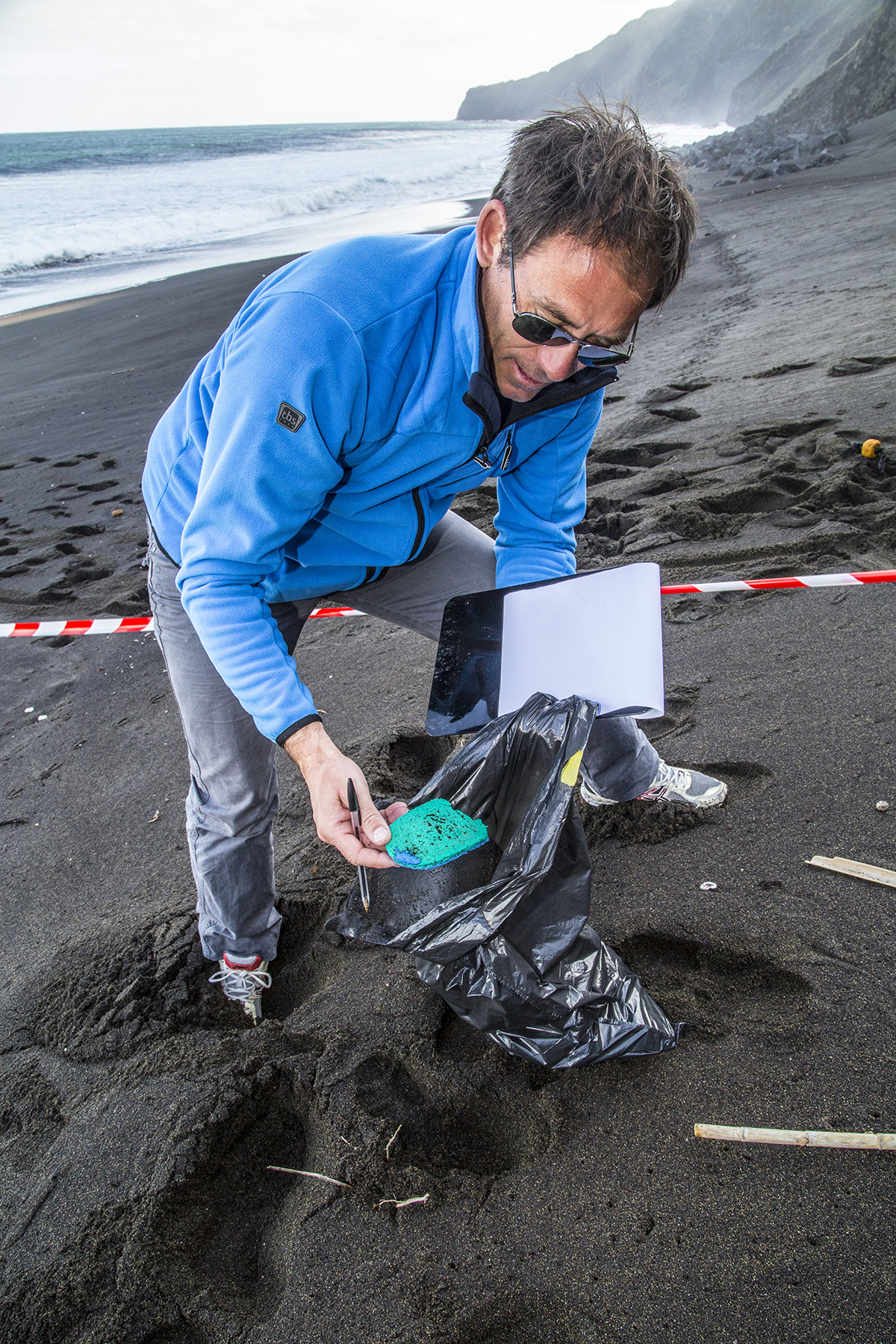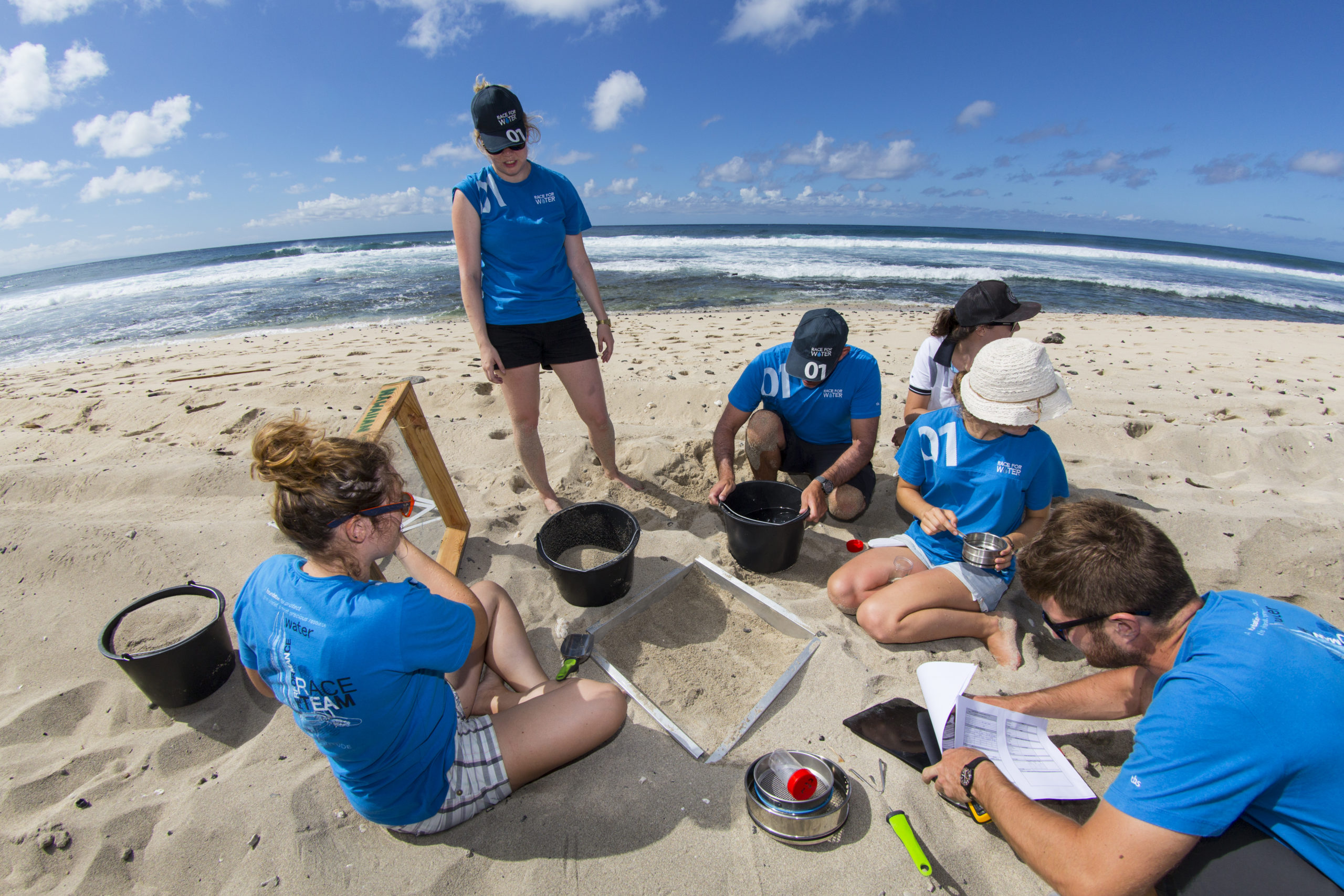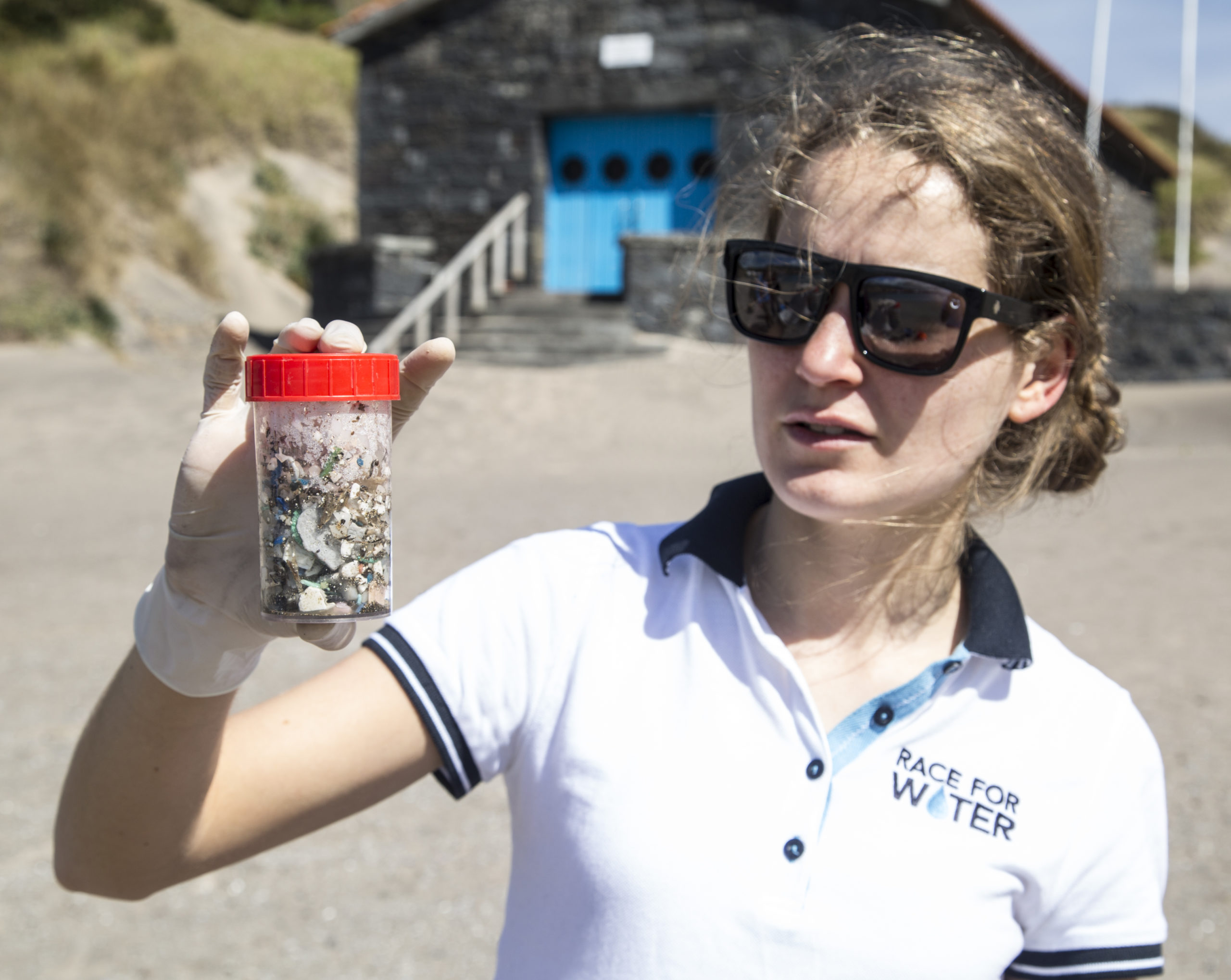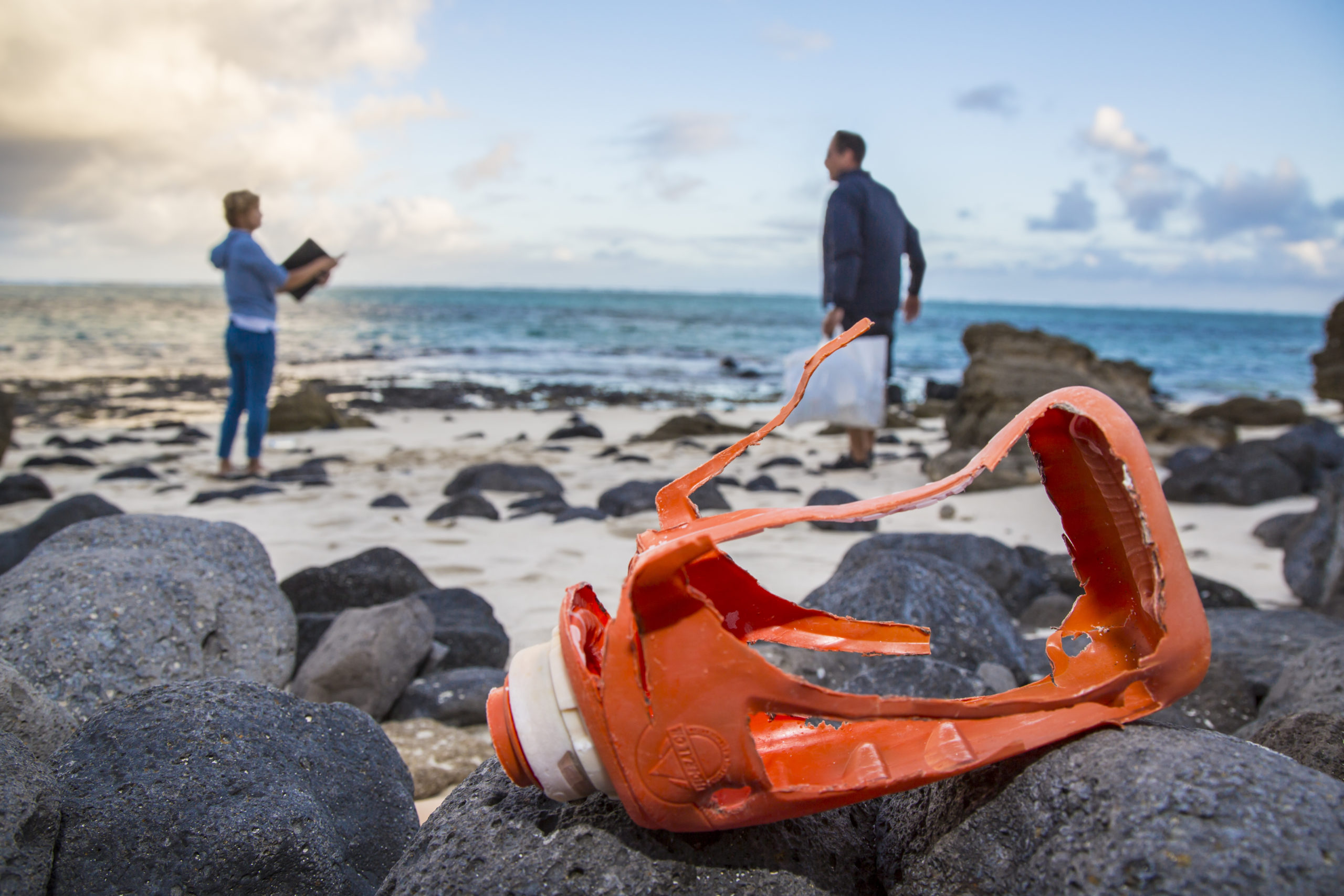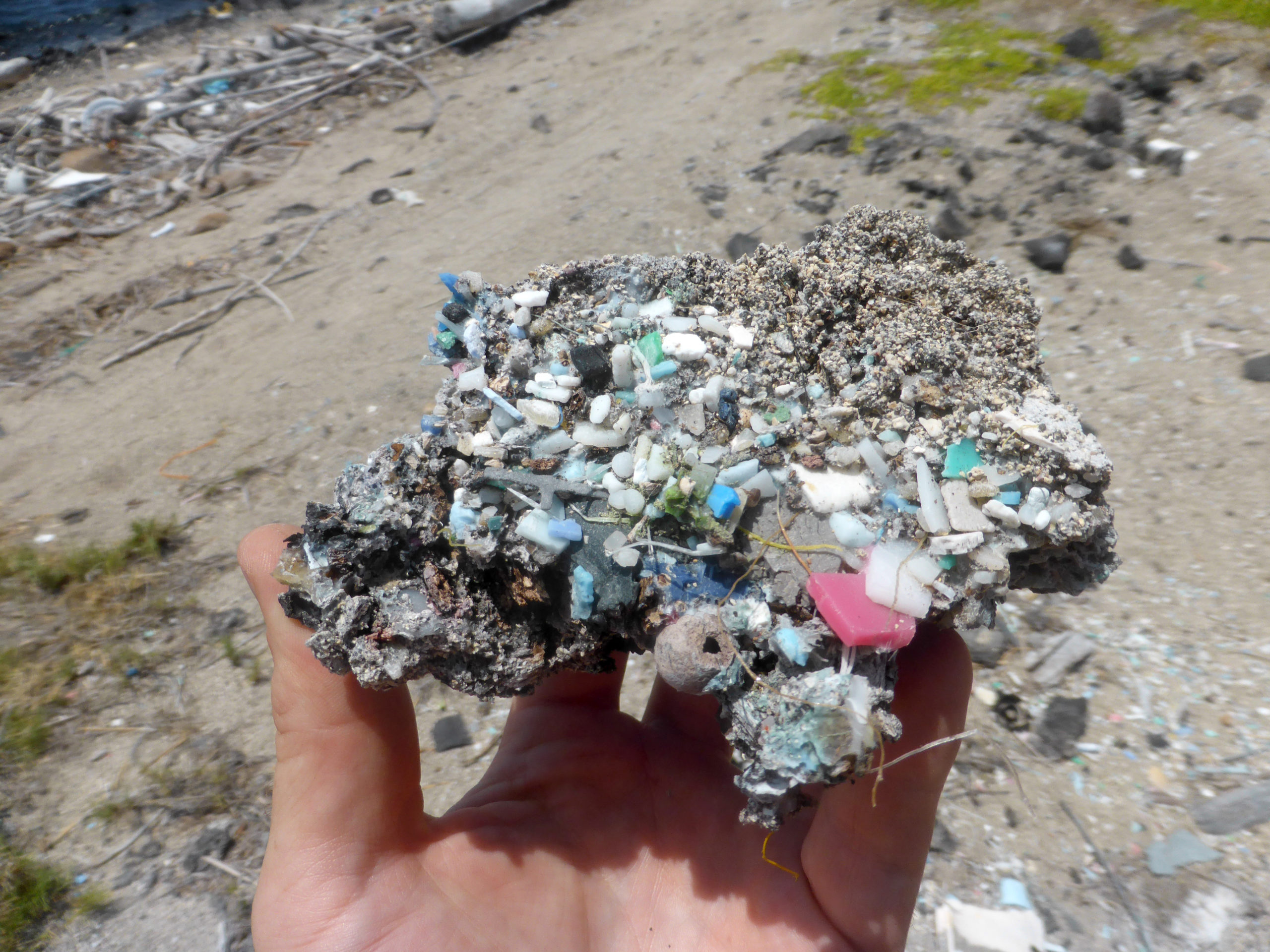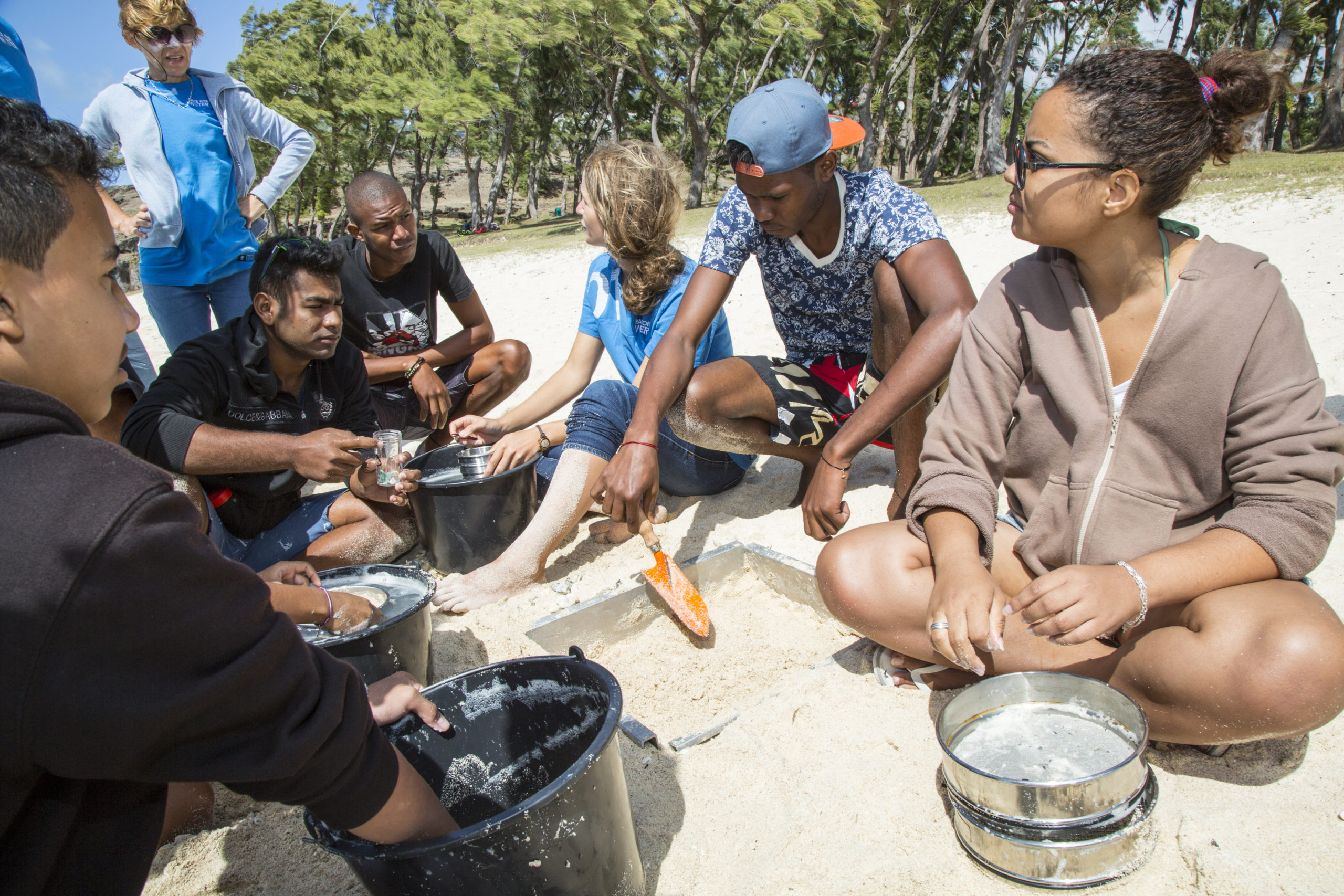The "Race for Water Odyssey" (R4WO) left on March 15, 2015 from Bordeaux, France.This expedition aimed to analyse the beaches of the islands located within the perimeter of the 5 oceanic gyres in order to carry out the first global inventory of plastic pollution in the oceans and its consequences on populations. All this in a record time of less than 300 days thanks to a racing trimaran, the MOD70 Race for Water.
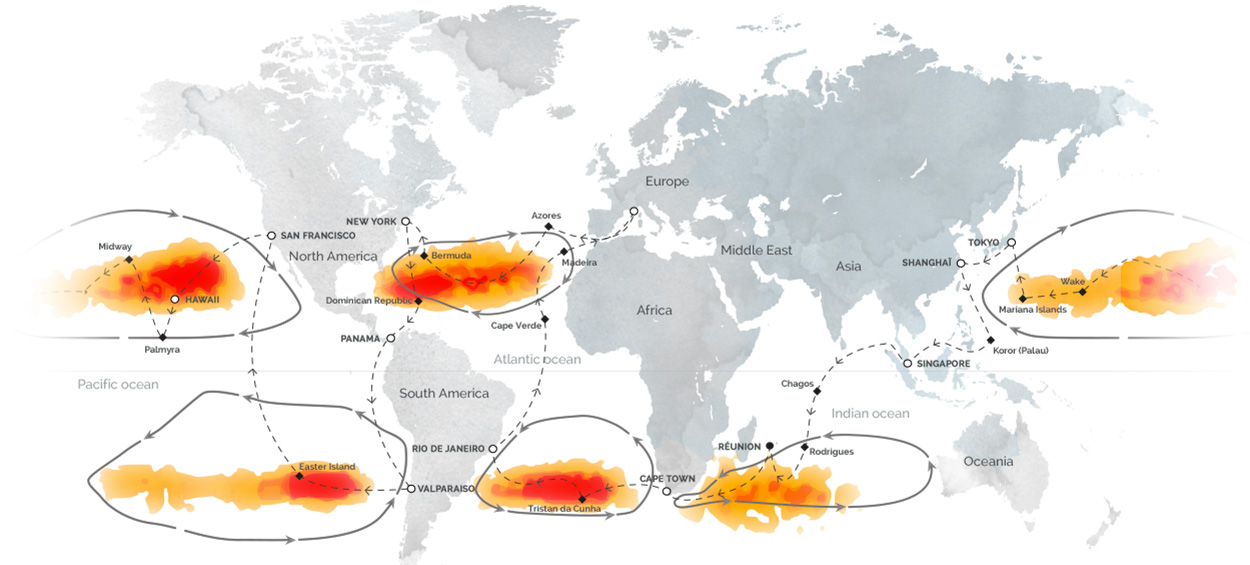
The crew also engaged with local stakeholders, including communities, authorities, and NGOs, to understand how they perceive and address plastic pollution.
After a year of expedition, the conclusion is clear: plastic is everywhere, in alarming quantities, mostly as micro- or even nanoparticles, making it increasingly unlikely that the oceans can ever be fully cleaned. The focus must instead be on stopping the flow at its source, on land, by preventing waste from reaching the oceans.
DISCOVER THE VESSEL
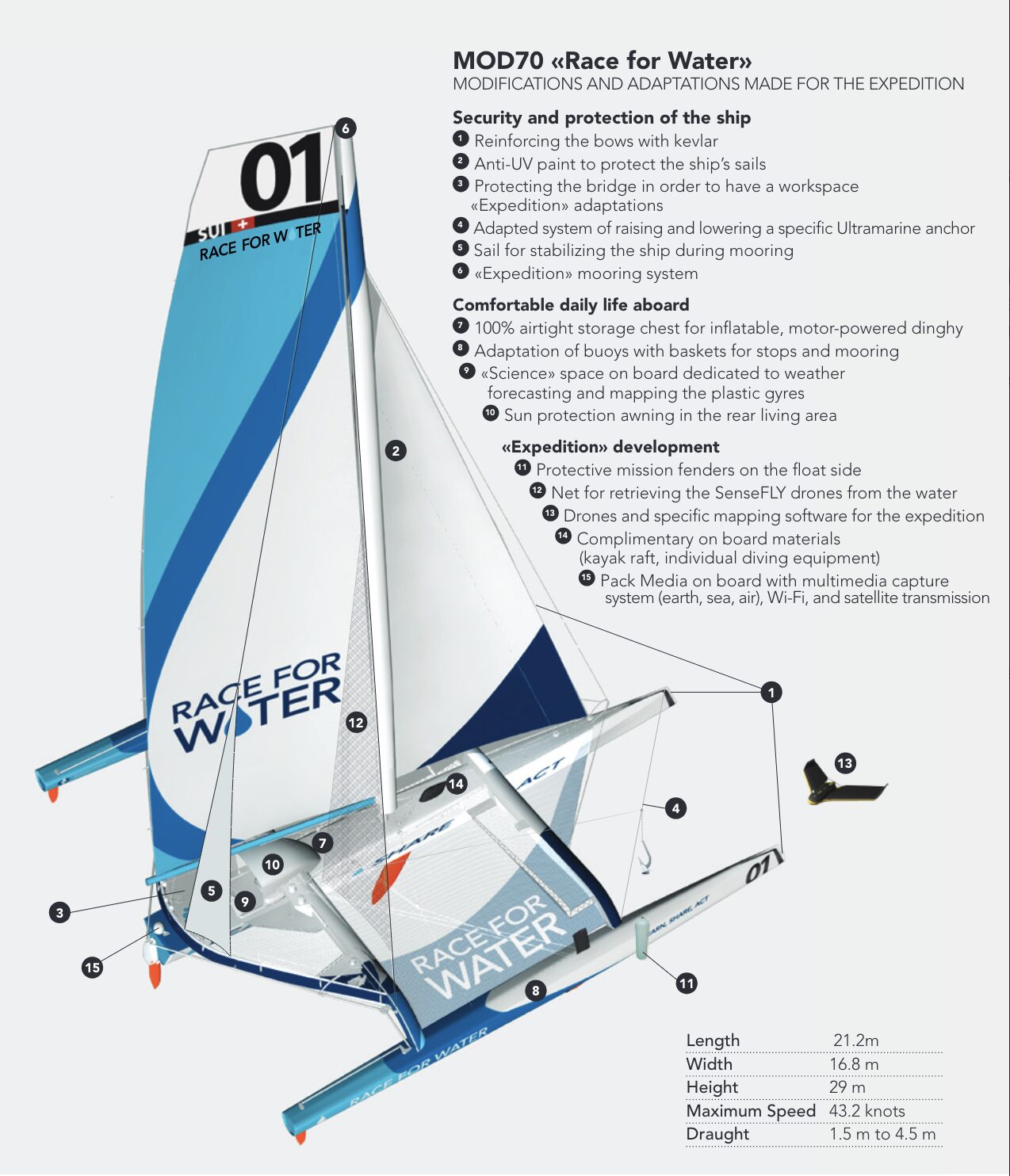
OUR PROGRAMS
LEARN – Conduct a global assessment of ocean plastic pollution and its consequences
Islands located at the heart of the major ocean gyres act as natural traps for marine debris: they intercept plastics carried by surface currents and accumulate them along their shores. These coastlines thus serve as highly representative sampling sites for assessing pollution in the surrounding waters.
During its first Odyssey in 2015, the Race for Water Foundation conducted a large-scale international scientific campaign to assess this pollution following a standardized protocol inspired by the NOAA (National Oceanic and Atmospheric Administration) methodology. Thirty beaches within the Atlantic, Pacific, and Indian gyres were studied to quantitatively and qualitatively characterize macro-waste and, in particular, microplastics.
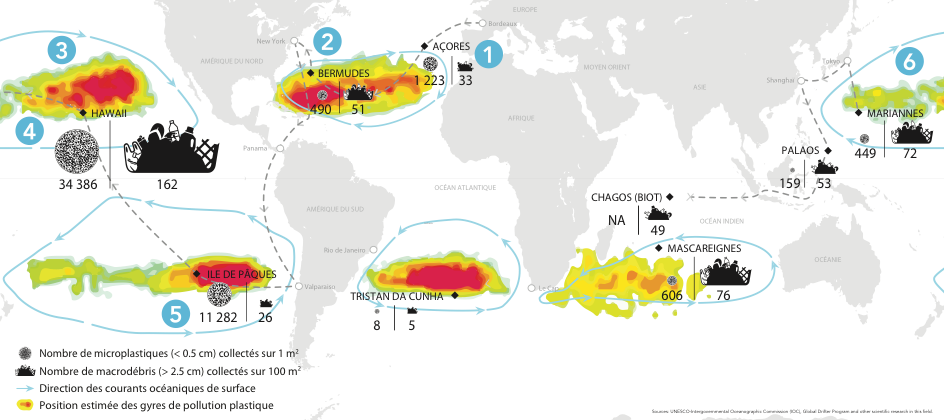
Early analyses revealed that a majority of the plastics washed ashore on these islands were extremely small in size. These “microplastics,” true pollutant sponges, are now identified as particularly concerning due to their toxic potential on marine life.
A team of researchers from the University of Bordeaux, in collaboration with ONIRIS in Nantes and EPFL in Lausanne, subsequently conducted several years of studies on the collected samples to assess the ecotoxicological effects of these microplastics on the early life stages of fish — cells, embryos, larvae, and juveniles.
The results of this major scientific mission are detailed in the dedicated article:
“The alarming impacts of microplastics on fish larvae and embryos.”

SHARE – Engaging the Public, Industry, and Policymakers to Combat Plastic Pollution
Raising awareness among the general public, industry, and policymakers about plastic pollution was a major goal of the expedition. At each stopover, the public, media, local authorities, and political stakeholders were engaged through numerous activities and events. The team made every effort to alert as many people as possible to the issues surrounding water and the urgent need to tackle plastic pollution. Special attention was given to younger audiences through educational and interactive activities, as well as the creation of teaching tools for schools.
Beyond assessing the situation, this first campaign allowed us to consolidate acquired knowledge to define concrete action levers. It highlighted the necessity of acting upstream, preventing plastic from entering waterways and promoting waste valorization.
A true springboard for sustainable solutions, the 2015 Odyssey laid the foundation for the Foundation’s long-term commitment : transforming research into tangible actions to reduce plastic pollution at its source.
ACT - Cross-referencing data collected with a view to developing concrete solutions for the future
Beyond simply observing the situation, this initial campaign enabled us to cross-reference the knowledge acquired in order to define concrete levers for action. It highlighted the need to take early action by preventing plastic from entering waterways and by incentivizing waste recovery.
A real springboard towards sustainable solutions, Odyssey 2015 laid the foundations for a long-term commitment by the Foundation: to transform research into tangible actions to reduce plastic pollution at source.
